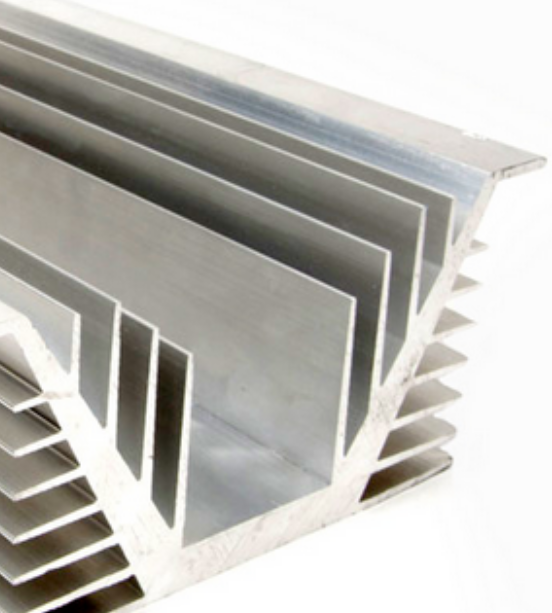
The extrusion process produces parts with excellent dimensional accuracy and uniform mechanical properties. Each extruded part is consistent in shape, size and performance, ensuring reliability and compatibility of the assembly process. The controlled extrusion process minimizes variations and defects, producing high-quality parts with tight tolerances.
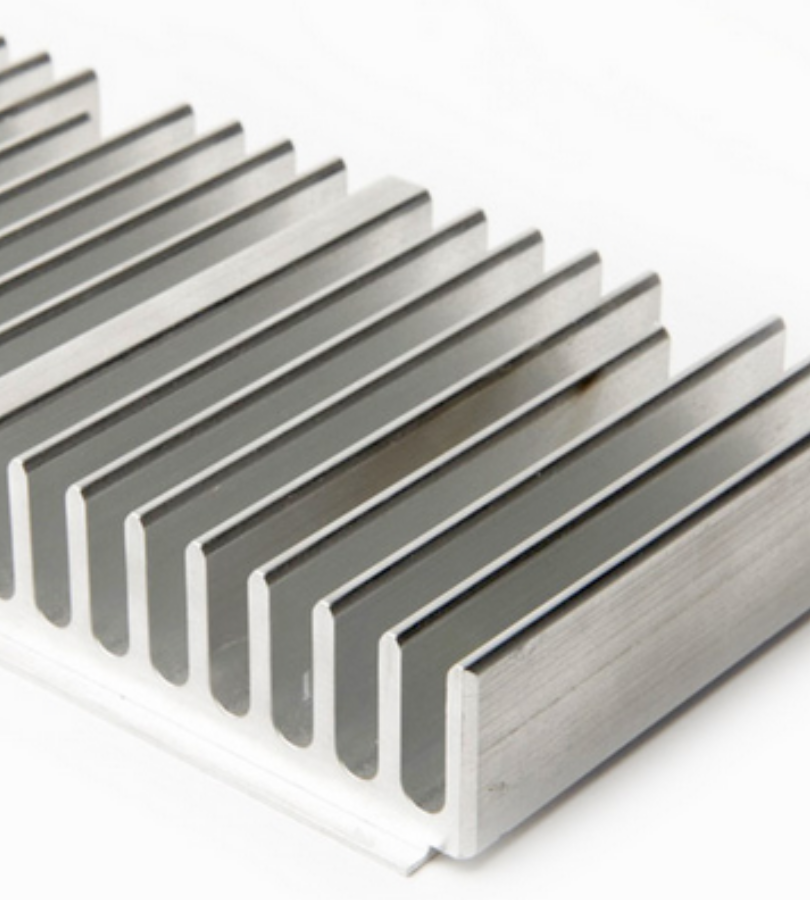
Extrusions play a key role in the design and construction of new energy vehicle structures. Their unique combination of strength, lightweight and precision milling properties make them ideal for this rapidly growing industry.
New energy vehicles, such as electric and hybrid vehicles, require lightweight and structurally sound components to optimize performance and reduce emissions. Extruded aluminum parts, in particular, provide designers with a high strength-to-weight ratio, providing durability and efficient vehicle dynamics.
A key application of extrusions in new energy vehicles is in the battery tray, a key component that carries the vehicle battery and ensures its safe transportation. Extruded aluminum components provide necessary structural support while minimizing weight, improving the vehicle's overall range and performance.
In addition, extruded parts are used to manufacture vehicle chassis and frames. Their ability to withstand high tensile loads and resist fatigue makes them suitable for these demanding applications. By using extruded parts in chassis design, manufacturers can achieve greater stiffness and improved handling, thereby enhancing the driving experience.
In addition to structural advantages, extrusions also contribute to the aesthetics of new energy vehicles. Their sleek and modern design integrates seamlessly into the vehicle body, enhancing its overall appearance.
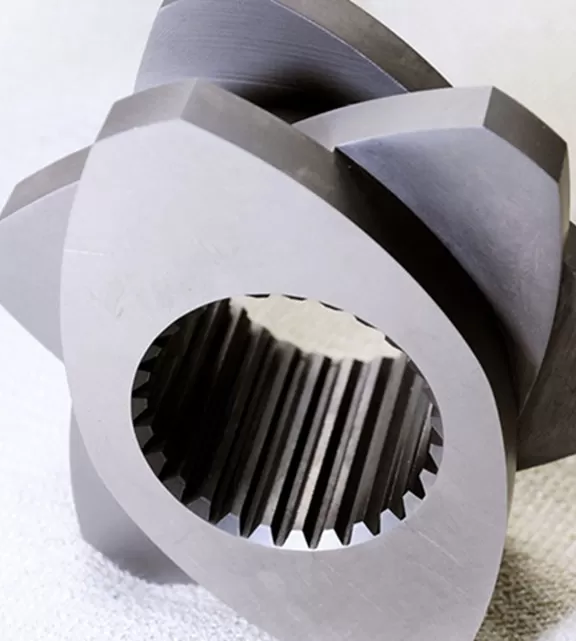
Extruded parts have become an integral part of modern manufacturing, revolutionizing production processes and increasing efficiency and versatility. Let’s explore the key applications of extruded parts in this dynamic industry.
Custom Profiles: Extruded parts offer superior design flexibility, allowing manufacturers to create custom profiles that fit specific manufacturing needs. Whether complex cross-sectional geometries, complex features or unique shapes, extrusion technology can produce highly specialized parts.
Simplified production: The continuity of the extrusion process is suitable for high-speed, high-volume production. Extruded parts can be manufactured in long lengths, minimizing the need for additional processing steps or assembly, streamlining production and reducing lead times.
Material Diversity: Extruded parts can be made from a variety of materials, including metals, plastics and composites. The material's versatility allows manufacturers to select the most appropriate material for a specific application, considering factors such as strength, durability, weight and cost.
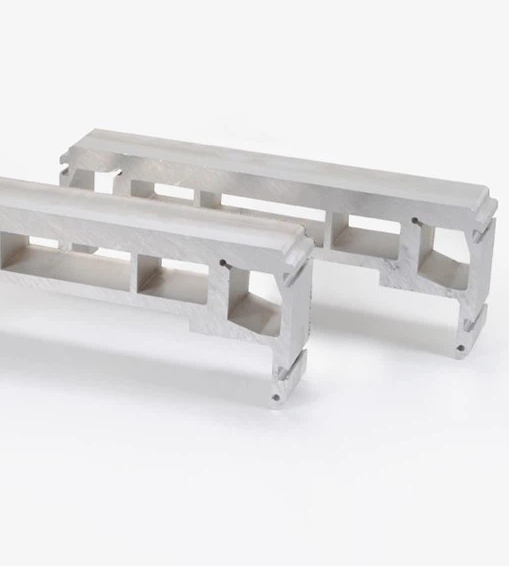
In the world of industrial manufacturing, extrusion technology has become an innovative and cost-effective solution for producing a wide range of components. Extruded parts are formed by forcing metal or polymer through a die to create a specific cross-sectional profile, offering significant advantages in efficiency, versatility and overall production cost.
The extrusion process starts with raw materials that are easy to source and process, such as aluminum, magnesium or various plastics. By converting these materials into complex shapes with high precision, manufacturers can eliminate multiple steps involved in traditional machining processes.
Extruded parts have consistent quality due to the uniformity of the extrusion process, which ensures every product is identical, reducing quality control measures and scrap rates. In industries such as automotive, aerospace, construction and consumer products, extrusions are commonly used in structural elements, housings and frames, providing lightweight yet strong solutions that require fewer assembly steps than assembled multi-part structures.
Additionally, the design flexibility of extrusions allows engineers to consolidate multiple components into a single extrusion, further streamlining supply chain and assembly line procedures. The ability to customize profiles also allows manufacturers to optimize material usage and meet stringent performance requirements while minimizing material costs.

Extruded aluminum parts offer numerous advantages in precision machinery, making them the first choice for a range of applications. Here are some of the key benefits of using extruded aluminum in precision machinery:
Strength and Durability: Suitable for precision machinery requiring high performance and long life. Its resistance to corrosion and wear further enhances its reliability in a variety of environments.
Lightweight: Extruded aluminum is a lightweight material that helps reduce the overall weight of precision machinery. This increases mobility, reduces energy consumption and improves operational efficiency.
Precise dimensions: The extrusion process produces parts with precise and consistent dimensions. This ensures that the parts fit together perfectly, thereby improving the overall performance and reliability of precision machinery.
Easy to machine: Extruded aluminum parts can be easily machined to obtain desired shapes and features, further enhancing their adaptability in different applications. This also saves time and effort in post-processing operations.
In summary, extruded aluminum offers numerous advantages in precision machinery, making it an excellent choice for a variety of applications. Its strength, durability, lightweight, precise dimensions, processability, cost-effectiveness and environmental friendliness help improve the performance and reliability of precision machinery.
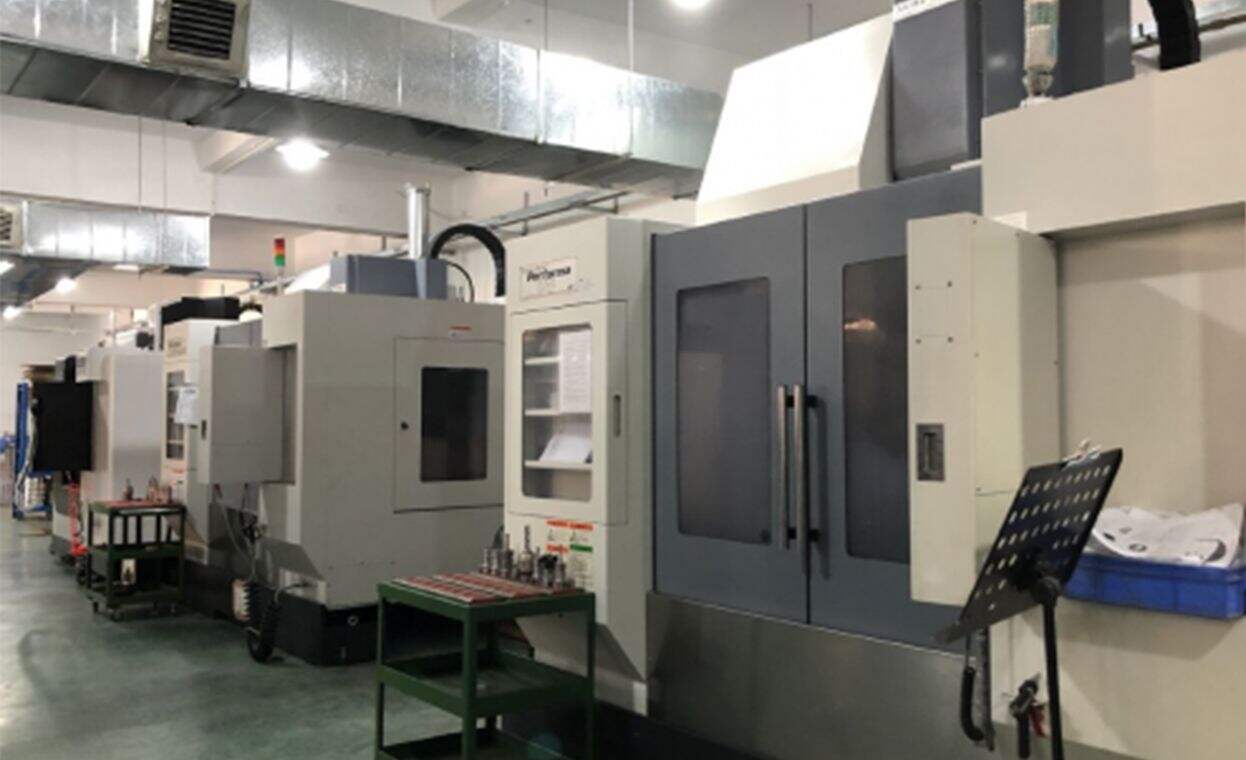
RMT is a precision custom manufacturing provider. We provide high-quality manufacturing with on-time delivery at competitive prices. Express your requirements and once confirmed, we will develop a solution that satisfies you. Every step in the process We will continuously communicate with you at every stage so that you can understand all the information about product manufacturing.
Put the needs and expectations of customers first and center, customize satisfactory solutions with personalized services for them, and exceed customers' expectations, thereby cultivating reliable long-term trust relationships.
Guiding clients through the custom manufacturing process from concept to completion, our consultants work closely with each client to understand their unique specifications and provide strategic insights for personalized production solutions
We utilize state-of-the-art machinery and strict quality control measures to manufacture components to precise tolerances. Every part undergoes rigorous inspection to ensure micron-level accuracy to meet the most demanding specifications.
From raw materials to finished products, we meticulously adhere to strict standards, monitoring and testing every step using cutting-edge methods to guarantee consistent performance and durability in all our products.
The extrusion process enhances the strength of extruded parts through several mechanisms. Firstly, the process involves forcing the material through a die, which imparts directional grain flow, resulting in improved mechanical properties. Secondly, the uniformity and homogeneity of the extruded profiles contribute to consistent material properties throughout the part, ensuring reliable strength and performance.
When utilizing extrusion parts, designers should consider factors such as wall thickness, cross-sectional geometry, and structural integrity. Wall thickness should be optimized to achieve a balance between strength and weight. Cross-sectional geometry should be designed to meet specific functional requirements, such as load-bearing capabilities or fluid flow channels. Structural integrity should be ensured through appropriate support structures and connections.
Extrusion parts offer several cost-effective advantages. Firstly, the continuous extrusion process enables the production of large volumes of parts in a short span of time, reducing production costs. Secondly, the high material utilization rates in extrusion minimize material waste, further reducing costs. Additionally, the ability to extrude a wide range of materials allows manufacturers to choose cost-effective options without compromising performance.
Extrusion parts offer design flexibility, streamlined production processes, material efficiency, cost-effectiveness, and consistent quality. These advantages contribute to improved productivity and enhanced performance in various industries.
The extrusion process minimizes material waste by utilizing continuous production methods and producing near-net shapes. Precise control over material flow ensures high material utilization rates, reducing waste and optimizing material efficiency in manufacturing processes.
